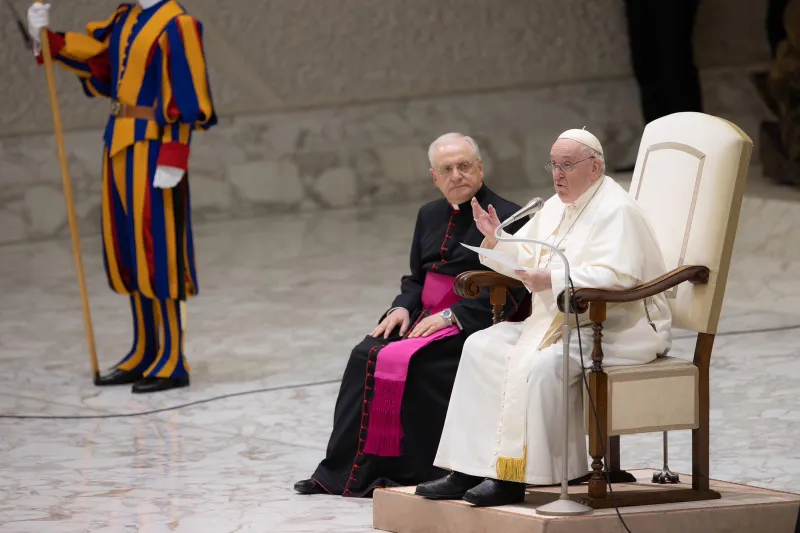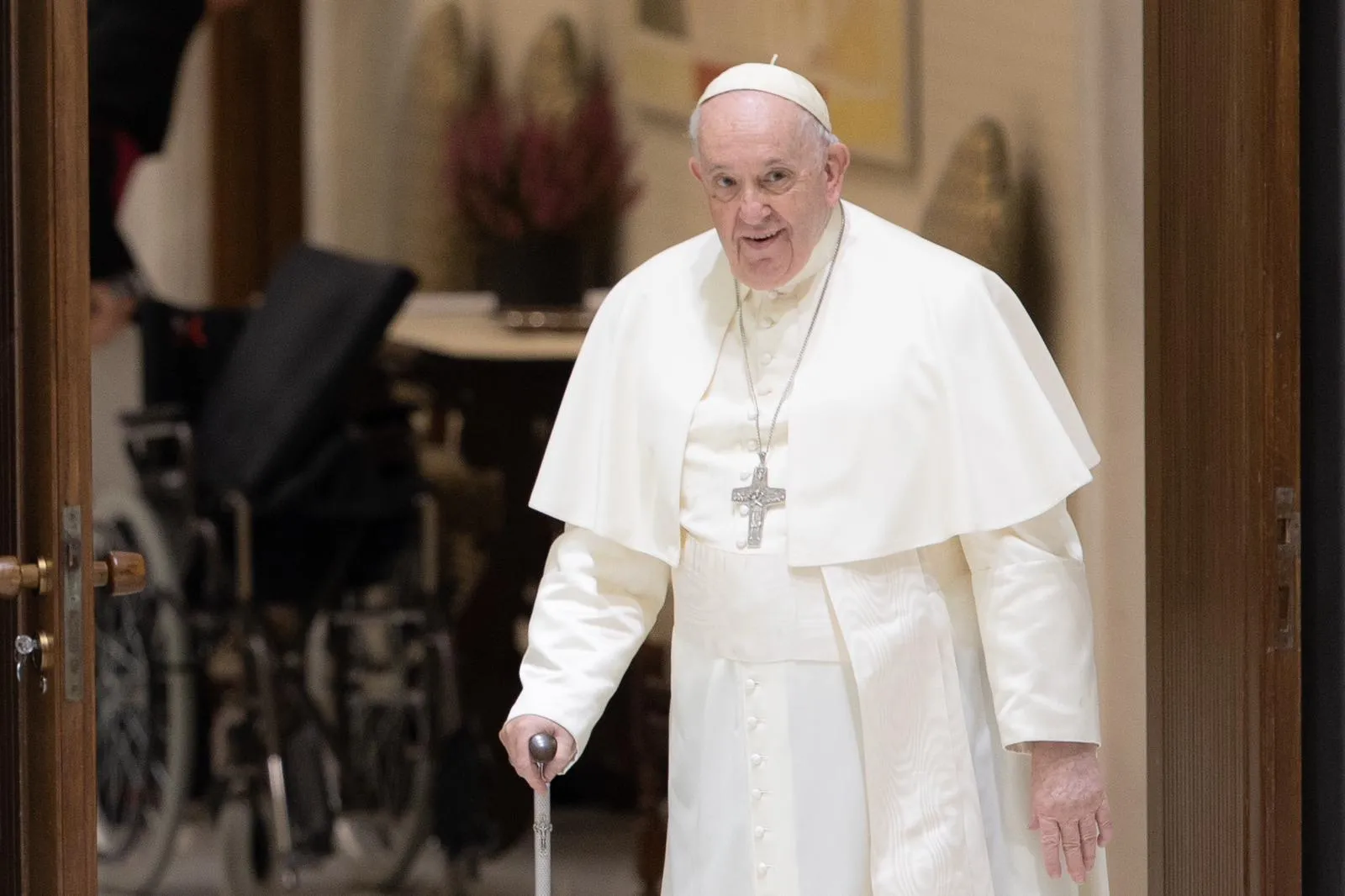
Vatican City, Sep 20, 2018 / 09:35 am (ACI Prensa).- In newly-surfaced letters from Benedict XVI, the pope emeritus has defended his abdication, and warned that continued anger at his decision risked undermining the papal office. The private correspondence, excerpts from which were carried in a German newspaper, was reportedly addressed to Cardinal Walter Brandmüller.
According to the letters, Benedict said he understood “the deep-seated pain” the end of his papacy caused the cardinal and others. At the same time, the pope emeritus wrote, he recognized that for some people the pain had “turned into an anger that no longer merely concerns my resignation, but increasingly also my person and my papacy as a whole.”
German newspaper Bild carried the excerpts in a story published Sept. 20. The letters were originally sent in November, 2017.
Bild did not name the recipient but referred to him only as “a German cardinal” who had made critical comments about Benedict’s resignation in an interview. On the same day, The New York Times reported that it had received a copy of the two letters in their entirety from Bild, and named Cardinal Brandmüller as the recipient.
Addressing the ongoing dissatisfaction some individuals had with both his resignation and his subsequent life as “pope emeritus” – a title not previously used – Benedict cautioned that these sentiments were undermining the effectiveness of the petrine ministry.
“In this way the pontificate itself is being devalued and conflated with the sadness about the situation of the Church today,” he wrote.
According to Bild, Benedict defended his decision, writing that if the cardinal knew “a better way” for him to have acted, “and therefore think that you can judge the one chosen by me, please tell me.”
In an interview with a German newspaper in October of last year, Brandmüller expressed dismay over the idea of a “pope emeritus,” which he said, “does not exist in the entire history of the Church.”
“The fact that a pope comes along and topples a 2,000-year-old tradition bowled over not just us cardinals,” he said.
The two private letters from Benedict have been reported to be a response to these comments. In the first, sent Nov. 9, 2017, Benedict wrote “you said that with ‘pope emeritus,’ I had created a figure that had not existed in the whole history of the Church. You know very well, of course, that popes have abdicated, albeit very rarely. What were they afterward? Pope emeritus? Or what else?”
Benedict alo cited the example of Pope Pius XII, who considered stepping down in 1944 in the event of his arrest by the Nazis authorities then occupying Italy. Pope Pius had considered returning to the rank of a cardinal in the event of his resignation.
Benedict wrote that, unlike Pius XII’s situation, “it would certainly have not been sensible” for him to return to being a cardinal as he would have been “constantly exposed to the media as a cardinal is – even more so because people would have seen in me the former pope.”
The pope emeritus added that “whether on purpose or not, this could have had difficult consequences, especially in the context of the current situation.”
Benedict explained that he was concerned with avoiding the impression that there were two popes, with his comments being sought on the ministry and decisions of his eventual successor.
“With ‘pope emeritus,’ I tried to create a situation in which I am absolutely not accessible to the media and in which it is completely clear that there is only one pope.”
In the second letter, dated Nov. 23, 2017, Benedict wrote that he was concerned by the conclusion of Cardinal Brandmüller’s interview with Frankfurter Allgemeine Zeitung, given the previous month. The pope emeritus said that it could promote the sort of agitation which had inspired “the Abdication,” a book by Fabrizio Grasso which argued that having emeritus popes could destroy papal authority.
Cardinal Brandmüller is one of four cardinals to have submitted five formal questions or “dubia” to Pope Francis, asking the pope to clarify some points of Church teaching in the wake of differing interpretations of Amoris laetitia, Francis’ 2016 post-synodal apostolic exhortation.
The letters from Benedict were reported by Bild two years and one day after the dubia were sent.
Brandmüller submitted the questions, together with Cardinal Raymond Burke, Cardinal Joachim Meisner, and Cardinal Carlo Caffarra, on Sept. 19, 2016.
If you value the news and views Catholic World Report provides, please consider donating to support our efforts. Your contribution will help us continue to make CWR available to all readers worldwide for free, without a subscription. Thank you for your generosity!
Click here for more information on donating to CWR. Click here to sign up for our newsletter.





They don’t seem to be private letters now, do they?
This report nothing less than stunning. Too bad Benedict didn’t get his back up and do the job he was elected to do. Why would any of us give credence to the Pope-Emeritus’ concern over his papacy which “…is now being devalued and melted into the sorrow about the situation in which the Church currently finds itself.”
Well whose fault is that?
October 28, 1958 saw the papacy take a turn into madness.
John XXIII was no bright light and his notions set in motion a tragic scenario from which we will be lucky to recover from in another one hundred years. He gave the secular-materialists the long leash and they took it and ran. He abdicated supremely his responsibility as Supreme Pontiff.
Paul VI was an architect of the Council. When he finally recognized the ecclesiastical Frankenstein he had let loose on the Church he wept and mourned over the smoke of Satan instead of doing something about it. He hid.
John Paul turned his attention to evangelization and not without tangible results – but he left Church administration and the governance of the episcopate in the hands of the nefarious and we live with those results today.
Benedict just quit and ran.
Bergoglio was described to John Paul by Father Kolvenbach, then Jesuit Superior General, as emotionally unstable and temperamentally unreliable. An Argentinian bishop [whose name escapes me] exclaimed at the announcement Bergoglio’s election “But he’s crazy!”
At least John XIII through Benedict XVI appeared to maintain the perennial Magisterium. The current occupant runs a circus where the most credible thing out of his mouth is “mums the word.”
The Mystical Body of Christ has been poorly served indeed by all of them.
Benedict had best do an examination of conscience. Saint Augustine’s critique on “the Shepherds” is rough going indeed this week in the Liturgy of the Hours. I don’t know how any bishop or pastor in the Church who bothers anymore (do any of them?) with his obligation to recite “the Hours” daily could do anything but wail each morning this week.
We are in the hands of self-absorbed fools.
I’ve searched high and low but am unable to find an explanation as to who and why these letters were made available to the media. These were private communications. Either the writer or the recipient would appear to be the only ones privy to them. What’s the story? The covert appearance of this correspondence is more of a story than their actual content. Given the doctored photos of Benedict’s correspondence regarding the pamphlets on “Bergoglian theology” earlier this year, one can’t help but wonder who and what purpose the release of this private correspondence is meant to serve.
Or did that evil butler come back and start leaking again?
Well said James